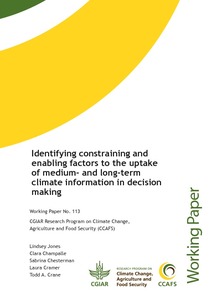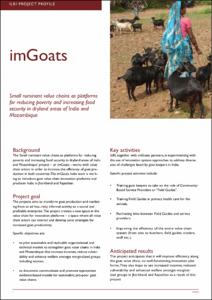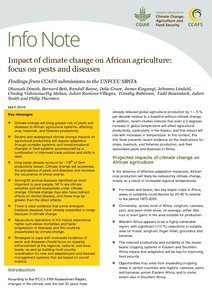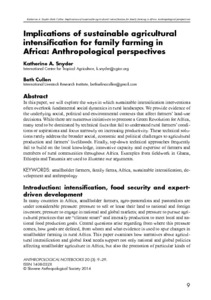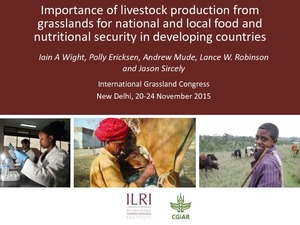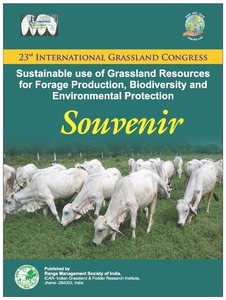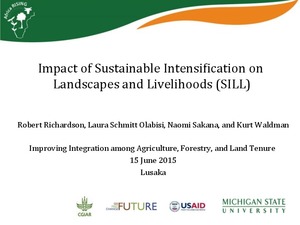Identifying constraining and enabling factors to the uptake of medium- and long-term climate information in decision making
We apply a systematic review of peer-reviewed literature to assess constraining and enabling
factors to the uptake of medium- to long-term climate information in a wide range of sectoral
investment and planning decisions. Common applications of climate information are shown to
relate to adaptation of environmental policy and planning, urban planning and infrastructure,
as well as flood and coastal management. Analysis of identified literature highlights five
Hypotheses on inland valley development for smallholder dairy production in three West African countries Côte d'Ivoire, Mali and Nigeria
A set of pre-formulated hypotheses about the potentials of inland valleys to agricultural production in general, and livestock (dairy) - based enterprises in particular, were tested with data collected from five regions comprising 71 villages/towns and 630 households in three countries (Nigeria, Mali and Côte d'Ivoire).
imGoats: Small ruminant value chains as platforms for reducing poverty and increasing food security in dryland areas of India and Mozambique
Impact of climate change on African agriculture: focus on pests and diseases
According to the IPCC’s Fifth Assessment Report, changes in the climate over the last 30 years have already reduced global agricultural production by 1 – 5 % per decade relative to a baseline without climate change. In addition, recent studies indicate that even a 2 degrees increase in global temperature will affect agricultural productivity, particularly in the tropics, and this impact will rise with increases in temperature.
Implementing REDD+ (Reducing Emissions from Deforestation and Degradation): evidence on governance, evaluation and impacts from the REDD-ALERT project
The REDD-ALERT (Reducing Emissions from Deforestation and Degradation from Alternative Land Uses in the Rainforests of the Tropics) project started in 2009 and finished in 2012, and had the aim of evaluating mechanisms that translate international-level agreements into instruments that would help change the behaviour of land users while minimising adverse repercussions on their livelihoods. Findings showed that some developing tropical countries have recently been through a forest transition, thus shifting from declining to expanding forests at a national scale.
Implications of sustainable agricultural intensification for family farming in Africa: anthropological perspectives
In this paper, we will explore the ways in which sustainable intensification interventions
often overlook fundamental social dynamics in rural landscapes. We provide evidence of
the underlying social, political and environmental contexts that affect farmers’ land-use
decisions. While there are numerous initiatives to promote a Green Revolution for Africa,
many tend to be dominated by technical fixes that fail to understand rural farmers’ condi
-
tions or aspirations and focus narrowly on increasing productivity. These technical solu
-


